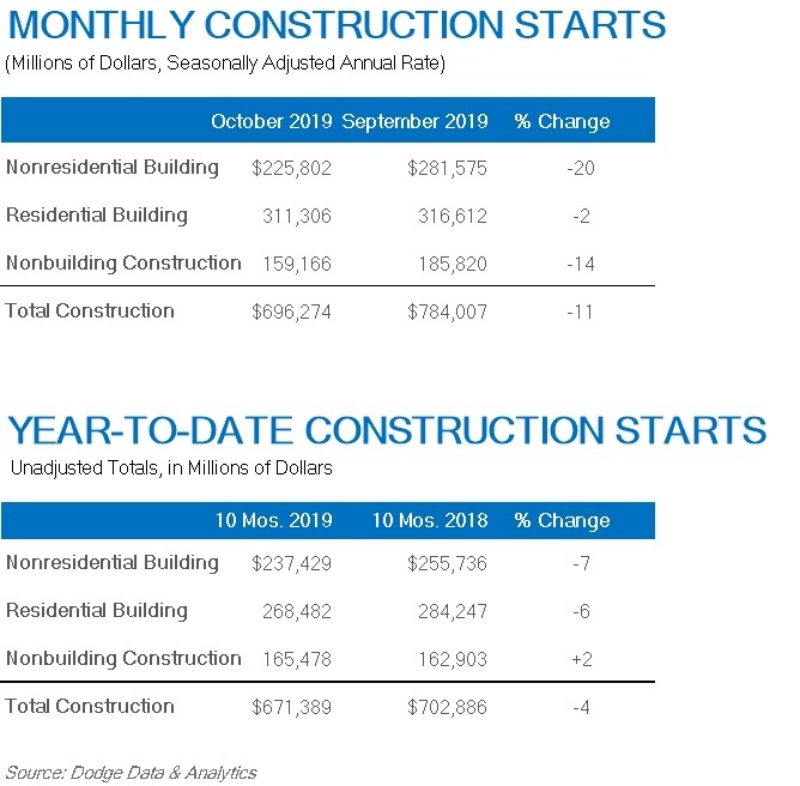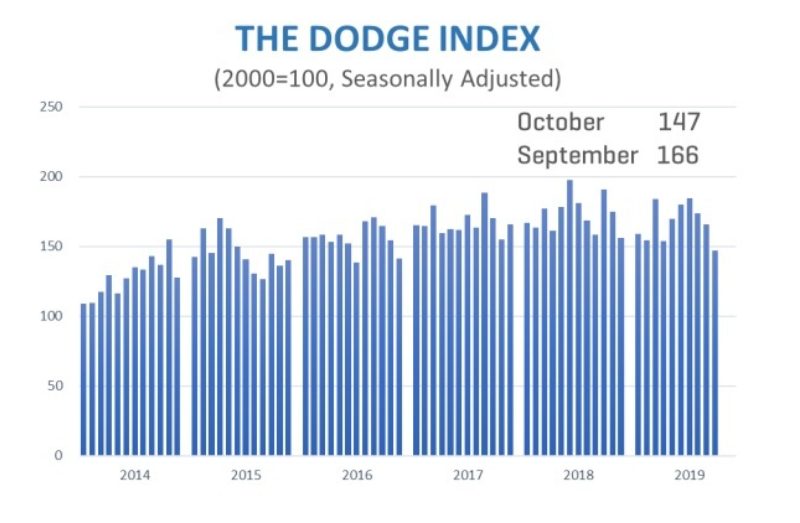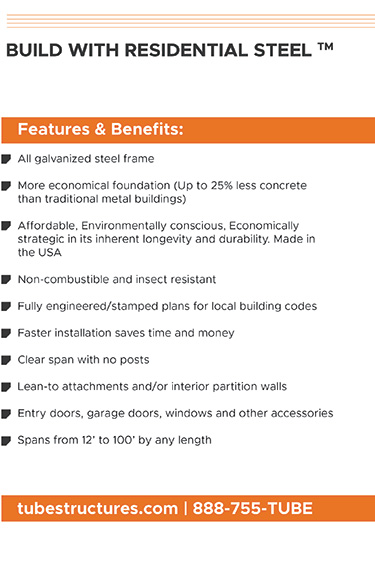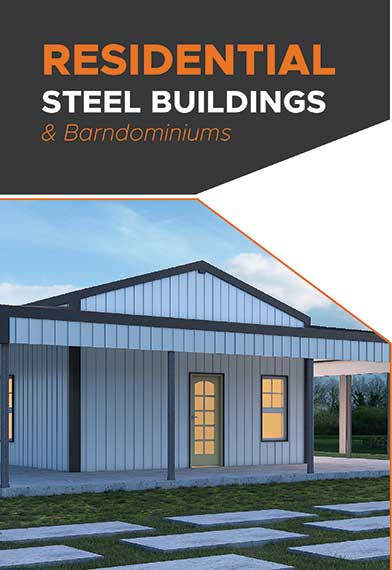October construction starts decrease 11 percent, Dodge Data reports
- November 7, 2020
- Posted by: Alan Hageman
- Category: News

New construction starts declined 11 percent in October to a seasonally adjusted annual rate of $696.3 billion, Dodge Data and Analytics reported. This was the third consecutive monthly drop in construction starts activity. By major sector, nonresidential building starts fell 20 percent from September to October and non-building starts dropped 14 percent, while residential starts moved 2 percent lower. The October statistics pushed the Dodge Index down to 147 (2000 equals 100) compared to 166 in September.
Through the first ten months of the year, total construction starts were 4 percent lower than in the same period of 2018. Both residential and nonresidential construction starts were down through ten months, although non-building starts remained on the plus side due to gains in electric utilities/gas plants and environmental public works.
“Concern over the health of the U.S. economy continues to play a key role in the pullback in starts over the past few months,” stated Richard Branch, chief economist at Dodge Data and Analytics. “However, solid real estate fundamentals (such as vacancy rates) in addition to stable public funding will continue to support a modest level of construction activity across both public and private projects.”
Non-building construction fell 14 percent in October to a seasonally adjusted annual rate of $159.2 billion. Starts in the electric utility/gas plant category fell 69 percent in October as activity retreated from a strong September. Environmental public works starts (drinking water, sewers, hazardous waste, and other water resource projects) moved 12 percent lower over the month. On the plus side, highway and bridge starts increased 4 percent in October and miscellaneous non-building starts increased 14 percent.
The largest non-building construction project to get underway in October was the $2.1 billion first phase of the Red/Purple Line Modernization project in Chicago. Also starting in October was the $390 million Nobles 2 County Wind Farm in Wilmont, Minn., and the $346 million improvement to I-485 intersections in Charlotte, N,C.
Through the first ten months of 2019, non-building construction was 2 percent higher than in the comparable period of 2018. The electric utility/gas plant category was 108 percent higher than a year earlier and environmental public works was up 2 percent. Miscellaneous non-building was 21 percent lower through ten months and highways and bridges declined 10 percent.
Nonresidential building starts lost 20 percent over the month in October, falling to $225.8 billion (at a seasonally adjusted annual rate). This steep decline comes after a very strong September that saw two projects valued at nearly $1 billion break ground, a consolidated rental car facility in Los Angeles and a large manufacturing complex in Detroit. In October, commercial starts fell 3 percent with gains in the office and hotel sectors muting the downturn. Manufacturing starts peeled back 69 percent and institutional starts moved 20 percent lower.
The largest nonresidential building project to break ground in October was the $600 million Vision Northland Medical Campus in Duluth, Minn. Also starting in October was the $200 million Volpe Transportation Center in Cambridge, Mass., and a $200 million dry dock in Groton, Conn., that will serve the new Columbia class nuclear powered ballistic missile submarines.
On a year-to-date basis through October, nonresidential building starts were 7 percent lower than a year earlier. Commercial starts were up 3 percent due to gains in office buildings, warehouses and parking structures, while institutional construction was down 6 percent through October with all major categories posting declines. Manufacturing starts were 43 percent lower.
Residential building dropped 2 percent in October to $311.3 billion at a seasonally adjusted annual rate. Single family housing starts were 7 percent lower, while multifamily starts increased 14 percent over the month. The largest multifamily construction project to get underway in September was the $278 million second tower of the Lakeshore East – Cascade Apartment Tower in Chicago. Also breaking ground during the month was the $253 million (apartment portion only) Azure Ala Mona Residential building in Honolulu, and the $230 million (apartment portion only) 40 Trinity Place Residential Tower in Boston.
Through the first ten months of the year, residential construction starts were 6 percent lower than in the same period of 2018. Single family starts were down 3 percent, while multifamily declined 12 percent year-to-date.




